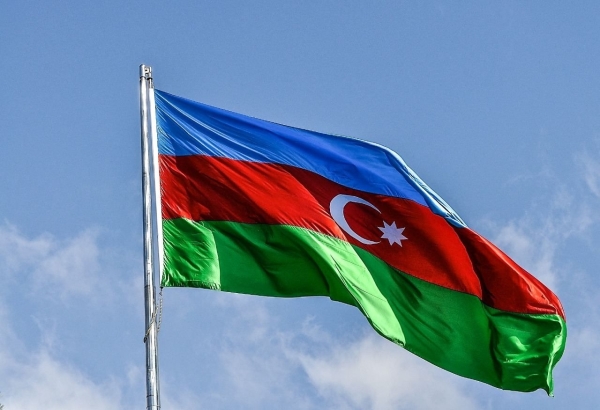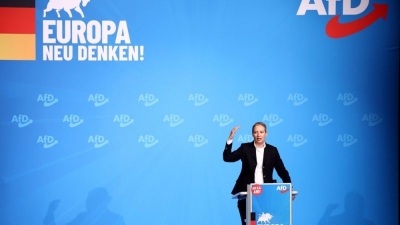French foreign policy breaks with its Western allies

The Minsk Group failed to achieve any breakthroughs during its three-decade existence and went into stagnation from 2010 when France and the US lost interest. With France and the US absent, Russia was able to capitalise on the vacuum during the Second Karabakh War as the main international negotiator and supplier of so-called ‘peacekeeping’ troops.
Throughout the decade prior to the Second Karabakh War, Baku became increasingly frustrated at France’s open bias in favour of Armenia. The reasons for this were two-fold. Firstly, France and the US have the largest Armenian diasporas outside the Russian Federation. Secondly, French foreign policy has supported Greece over Turkey and Armenia over Azerbaijan.
The US was little better as Washington had long punished Azerbaijan by denying it military assistance. US policy created a false impression that Azerbaijan was the guilty party in the conflict when in fact, Armenia was illegally occupying a fifth of internationally recognised Azerbaijani territory. Poor relations between Washington and Ankara reinforced lobbying by the Armenian diaspora.
France’s inability to adopt a balanced approach to the South Caucasus became evident after the Second Karabakh War when both houses of the French parliament voted to support Armenian separatism in Karabakh. In November 2020, 295 French Senators (with only one voting against) adopted a resolution to recognise Karabakh as an ‘independent’ republic. The next month, 188 deputies in the National Assembly voted (with only three opposed) to also recognise Karabakh as an independent ‘republic.’
France’s National Assembly also called upon the EU to end negotiations with Turkey on the accession process. Azerbaijan is collateral damage of widespread Turkophobia in France.
Support for Armenia is probably the only policy that has support across the entire French political spectrum. French President Emanuel Macron has never hidden his support for Armenia, saying, ‘France reconfirms its future friendship with the Armenian people in view of our close human, cultural and historic ties. We are on Armenia’s side in this dramatic context.’
AdvertisementRecently, France sold an air defence system to Armenia, a military ally and economic partner of Russia. Earlier this year, Paris supplied the same Thales GM 200 system to Ukraine. As Russia operates Armenia’s air defence, it is highly likely this technology will end up being scrutinised by the Russian military and even transferred to Russia.
France’s support for Armenia away from Ukraine was re-confirmed by the delivery of the first batch of 24 Bastion armoured vehicles from the French defence company Arquus to Armenia. Negotiations on the sending of these armoured personnel carriers to Ukraine had been taking place since October of last year ago.
Ukraine is fighting an existential war for survival; Armenia is not at war or under threat. Armenian claims that it is threatened by Azerbaijani territorial revanchism have no basis.
Armenia is a founding member of the Russian-led CSTO (Collective Security Treaty Organisation). Although Prime Minister Nikol Pashinyan did not attend the November 8 CSTO summit in Moscow this does not mean Armenia is considering an ‘Armexit’ from the organisation, despite his protestations of its ineffectiveness. Armenian Deputy Foreign Minister Vahan Kostanyan told journalists on November 9 that Armenia is currently not discussing the legal process of leaving the CSTO.
France’s security relationship with Armenia conflicts with NATO and the EU’s policies towards Russia and Iran with whom Armenia has long-term embedded security relationships. Armenia has yet to publicly state which side of the anti-Western axis of evil fence it is sitting. Indeed, if Yerevan is siding with the West, Yerevan must cut its security relationships with Russia and Iran.
France, like many EU members, would welcome Armenia’s integration into Europe but this should be grounded in the real world and not in the realm of fantasy. Deep Armenian-Russian relations are a product of three decades of integration that cannot be changed overnight. Armenia’s economy is heavily reliant on Russia through transfers from migrant workers, trade, and membership of the Eurasian Economic Union (EEU). Armenia is reliant on Russia and Iran for its energy.
France is jumping the gun in militarily supporting Armenia. Although the Kremlin supported the UK’s Brexit from the EU, there is no evidence Putin would permit Armenia’s ‘Armexit’ from the CSTO and EEU.
France’s bias towards Armenia and support for separatism in Azerbaijan sends a signal it’s sincerity cannot be trusted on the question of restoring Ukraine’s territorial integrity. Meanwhile, France’s supply of military equipment to Armenia has compromised Ukraine’s air defence and security at a critical point in the war with Russia.
France pursues contradictory goals of restoring Ukraine’s territorial integrity and encouraging Armenian separatism. Meanwhile, France’s supply of military equipment indirectly provides Russia and Iran with access to Western military equipment that constitutes a threat to both Ukrainian and Israeli security.
Taras Kuzio is a professor of political science at the National University of Kyiv Mohyla Academy and an associate research fellow at the Henry Jackson Society. He is the winner of the 2022 Peterson Literary Prize for the book “Russian Nationalism and the Russian-Ukrainian War: Autocracy-Orthodoxy-Nationality.”
Share this article:



